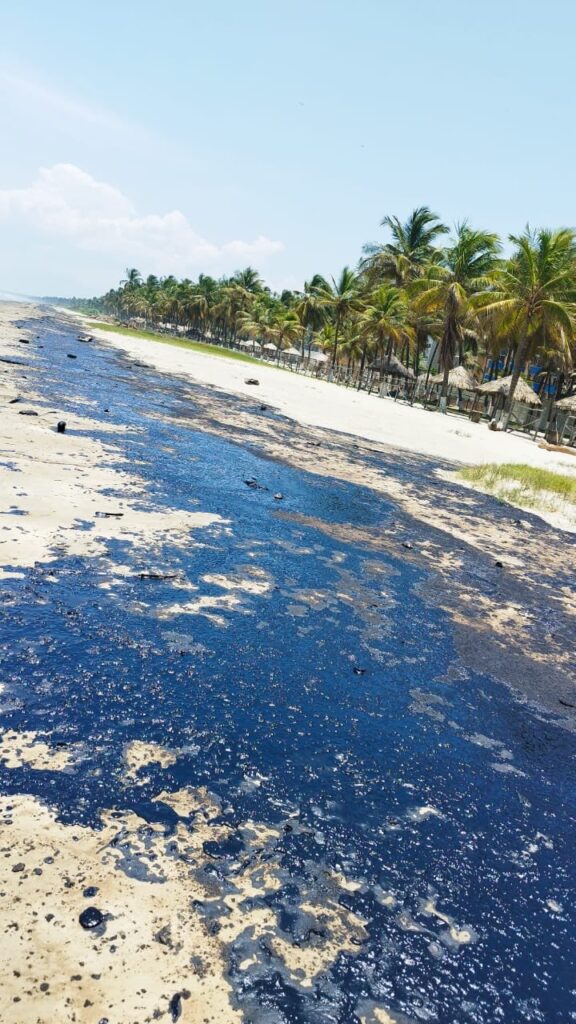A massive oil spill has been spreading off Venezuela’s Caribbean coast since mid-August, covering at least 225 square kilometers (nearly 90 square miles). The spill has received little media coverage as the country continues to be embroiled in an electoral crisis.
First reported by Reuters On August 17, the spill appeared to originate from the El Palito refinery, the smallest oil refining complex in Puerto Cabello on the coast of Carabobo, a central state.
On August 14, satellite images posted to X by marine biologist Eduardo Klein showed the spill covered about 225 kilometers, or about 37,000 football fields.
Klein warned that this spill “was bigger than previous ones.”
The new spill is fuel, a hydrocarbon with a higher viscosity than oil. It could be one of the biggest in Venezuelan history.
The spill first spread off the coast of Boca de Aroa, a small fishing town in Falcon State. Fishing and all tourist activities in the area are suspended until further notice.

Images and videos of the contamination were posted on social media as the spill spread to beaches in Tucacas, a popular tourist destination known for its palm trees and mangroves.
As of Aug. 20, the leak still had not been contained, according to Klein. Due to winds and currents, the path of the spill could not be predicted.
On August 30, satellite images showed that the oil slick from the El Palito spill spread eastward off the coast of Miranda state, more than 150 km away from the point of origin. The spot was about 50 km long.
Over two weeks since the first reports of the spill, there is still no response from any state authority. The environmental NGO Clima 21 expressed “alarm” for “absolute silence from the authorities”.
“The political crisis cannot be an excuse to hide situations that threaten the health of the environment and its citizens,” the NGO’s statement says.
Venezuela has been in the midst of a political crisis since hotly contested elections on July 28. The government claims Nicolás Maduro won re-election and has since implemented a crackdown on dissent. The opposition claims that their candidate, Edmundo González Urrutia, won by a large margin.
In the first semester of the year, environmental human rights NGO Clima 21 reported at least 18 oil spills. According to the NGO’s coordinator, Alejandro Alvarez Iragorry, “it is likely that the actual number is much higher” due to the fact that state oil company PDVSA has not released information on spills since 2016.
Clima 21 concluded that Venezuela’s oil industry produced an average of 6 oil spills per month in 2023.
On September 1, Klein reported another leak through X, this time at PDVSA’s underwater oil pipeline.


